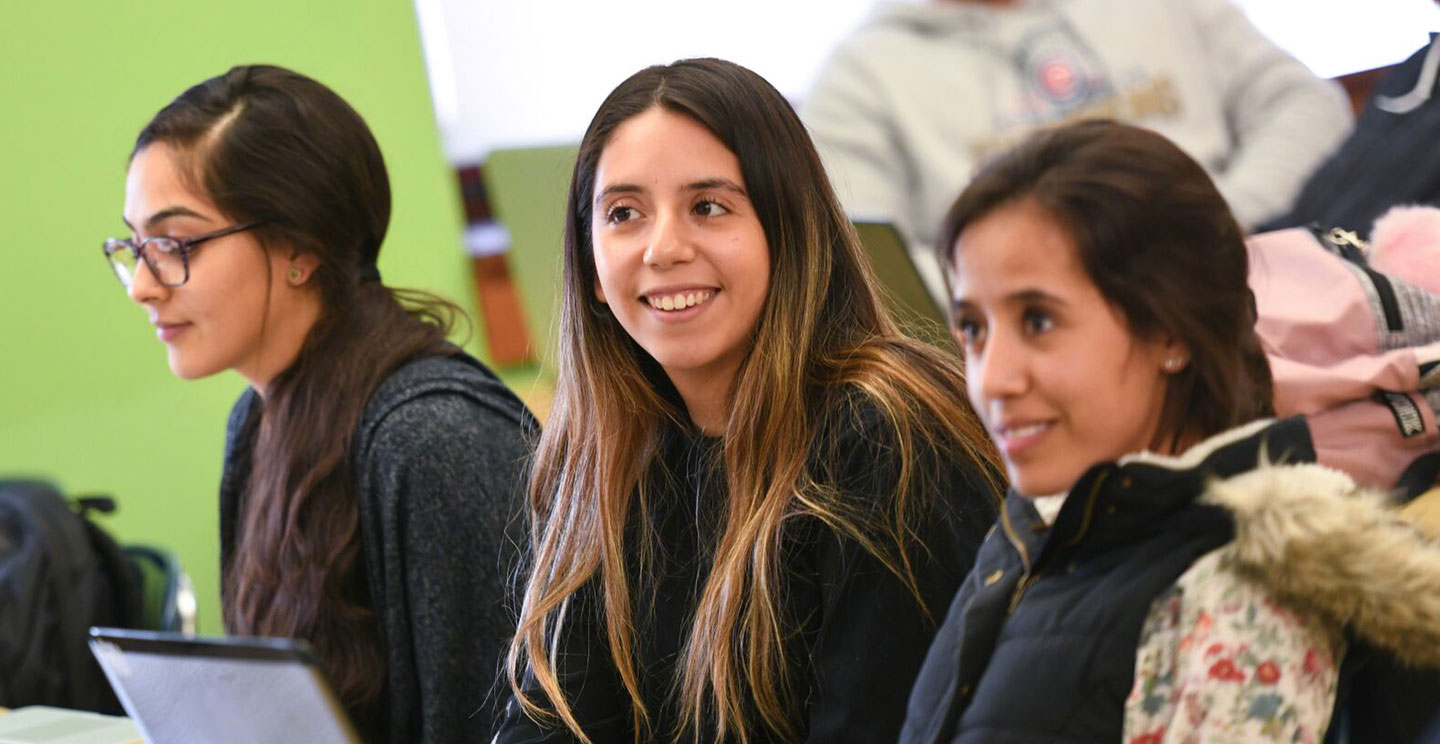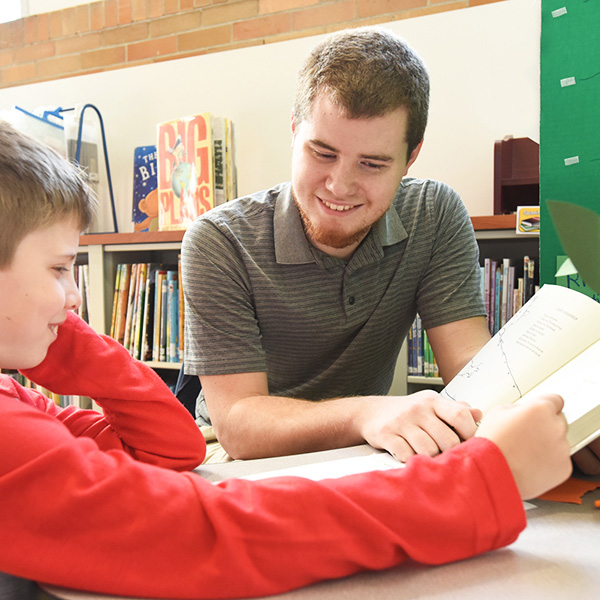Early Childhood Special Education with ESL/Bilingual (BA)

Why study Early Childhood Special Education with English as a Second Language/Bilingual?
The Early Childhood Special Education with English as a Second Language/Bilingual program is designed for students who are interested in working with children across the learning spectrum and who are second-language learners. Professionals with an Early Childhood Special Education background are determined to help young children grow and prosper and are prepared to deliver specialized instruction.
At Aurora University, our Early Childhood Special Education with English as a Second Language/Bilingual program is designed to prepare you for your role as a teacher and enable you to influence the lives of our future leaders. Throughout your coursework, practicums, and student teaching experiences, you’ll work closely with experienced teachers who will mentor you as you work toward licensure and help you prepare for a meaningful career after college.
As an Early Childhood Special Education with English as a Second Language/Bilingual major at Aurora University, you will participate in an enriching student teaching experience. This important part of your journey puts you in charge of a real classroom in a local school while you are still a student at AU. Additionally, AU’s community partnerships will provide you with opportunities to collaborate with area preschools, day care centers, and public and private schools as you learn the most up-to-date methods for teaching children from birth to second grade.
All of Aurora University’s Education programs prepare you to become licensed as a teacher in the state of Illinois. Students must complete the Teacher Performance Assessment (edTPA) in order to become licensed. The edTPA is a planning, instruction, and assessment portfolio required to prepare teachers for the classroom.
By adding a minor to the Early Childhood Special Education with English as a Second Language/Bilingual major, you can be prepared to teach science, technology, engineering, and mathematics (STEM) or health.
AU also offers endorsements that can be earned in addition to any education major, making you eligible for additional teaching opportunities. These include:
- Early Childhood Education Endorsement
- Elementary Education Endorsement
- English/Language Arts Middle School Endorsement
- Math Middle School Endorsement
- Science Middle School Endorsement
- Social Science Middle School Endorsement
- Spanish Endorsement
- Special Education Endorsement
Teachers who love teaching teach children to love learning.Robert John Meehan
annual median salary for special education teachers
2024-2034 job openings projected each year
- How children of different ages learn and grow
- How to assess children
- How to create a nurturing classroom environment
- Aspiring Educators
- Kappa Delta Pi International Honor Society in Education
- Latin American Student Organization
- Wackerlin Center for Faith and Action
To learn more about all of AU's Education programs, including scholarships, click here.

Experiential learning
As an Early Childhood Special Education with English as a Second Language/Bilingual major at Aurora University, you will participate in an enriching methods, practicum, and student teaching experience. This important part of your education puts you in charge of a real classroom in a local school while you are still a student at AU.
Career possibilities
- Kindergarten, first- or second-grade school teacher
- Special education teacher
- Curriculum specialist
- Resource teacher
- Training specialist
- Tutor
- Educational materials salesperson
- Education training administrator
Career options with additional education
- Special education administrator
- Speech pathologist
- School psychologist
- Vocational rehabilitation counselor
- Adult education teacher
- College/university instructor
- Curriculum specialist
- Guidance counselor
- Librarian